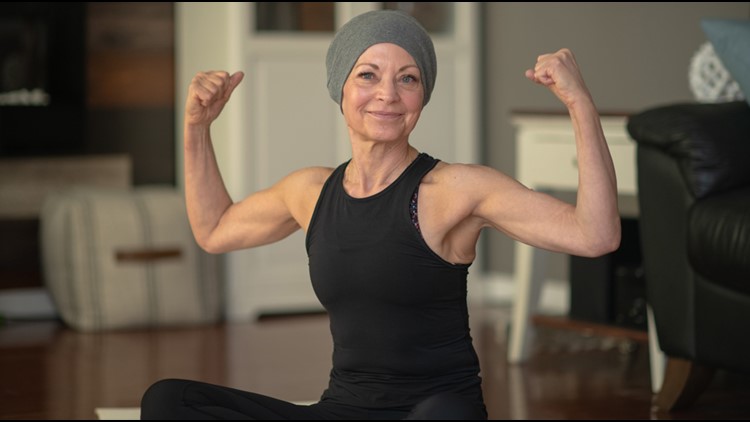Sponsored: OSUCCC – James
Many people may not realize that the average age of the approximately 228,000 Americans who will be diagnosed with lung cancer this year is 70. Providing the best oncology care for these older adults — while still serving their comprehensive needs — requires a specialized approach to care that considers the whole patient.
“Historically, older patients with cancer have been under-studied, and they participate in clinical trials at a much lower rate than younger adults,” says Carolyn Presley, MD, MHS, a thoracic medical oncologist and geriatric oncology specialist at The Ohio State University Comprehensive Cancer Center – Arthur G. James Cancer Hospital and Richard J. Solove Research Institute (OSUCCC – James).
Determined to change this research paradigm, Presley and her colleagues have initiated several clinical trials that she says are designed to “maintain and improve the function of older adults with lung cancer and help them become more resilient during their treatment.”
Presley’s research focuses on how physical therapy, exercise, relaxation therapy and, most recently, diet, can improve the effectiveness of treatments and the ability of older patients to function and enjoy life to the fullest during and after their cancer treatment. She is also one of the leaders of The James Cancer and Aging Resiliency (CARE) Clinic, a multidisciplinary clinic that addresses the needs of older adults with cancer.
Clinical Trials for Physical and Cognitive Health
Recognizing that every patient is unique, OSUCCC – James researchers are conducting a clinical trial called FITNESS that assesses the physical, mental and cognitive health of patients. “The goal is to determine who is at a higher risk to develop toxicity from their treatment,” Presley says of the clinical trial, which was initiated by her collaborator and colleague Ashley Rosko, MD. They hope to expand this trial in the near future to enroll more patients and to include other cancer centers.
An associated clinical trial led by OSUCCC – James researchers is called “Resiliency Among Older Adults Receiving Lung Cancer Treatment (ROAR-LCT).” This study includes a virtual component that enables patients to participate from home.
ROAR features two components: exercise under the guidance of an OSUCCC – James physical therapist, and relaxation exercises. “Typically, I see patients every three weeks in my clinic,” Presley explains. “When they come in, they’ll also do the exercise and relaxation components of ROAR. It can be hard for patients to come to the clinic every week, so, this way, they can log into their Ohio State MyChart online portal and have a one-on-one session with one of our specialists from their own home.”
Patients who don’t have a smart phone or home computer and internet access are given a tablet with data service.
“We’re still learning about the impact of physical activity and relaxation, and how this can boost your immune system or perhaps even help immunotherapy work more effectively,” Presley says. “We know stress suppresses the immune system.”
Overcoming Weight Loss
Up to 70% of lung cancer patients lose weight and become malnourished. “Cancer can take all your energy and calories and change your metabolism, and when you combine this with patients losing their appetite and just not wanting to eat, it can become a serious problem,” Presley says.
To address this issue, Colleen Spees, PhD, RD, and Presley will lead a new clinical trial in which at-risk patients will be given medically tailored meals along with intensive nutritional counseling and special, home-delivered meals. In addition, Presley is leading a trial to test a new drug that could improve the appetite of patients and alter their metabolism to help with weight gain.
The OSUCCC – James sees more than 1,400 lung cancer patients a year and has a clinical trials program that gives patients more options for care, including immunotherapy and targeted therapies as well as combination therapies.
“Less than 10% of patients who are 70 and older participate in clinical trials nationally, and the majority of the patients we treat are over 70,” Presley says. “They’re chronically under-represented in clinical trials, and we’re working to change that.”
To learn more about lung cancer treatment or clinical trials at the OSUCCC – James, visit cancer.osu.edu/lungcancer or call 1-800-293-5066.



